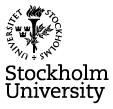Paul Cox on Indigenous Knowledge and Conservation Policy
Prof. Paul Cox will on September 22, 2000, hold the seminar "Indigenous Knowledge and the Formulation of Conservation Policy".
But why should ethnobotanists, anthropologists, and linguists struggle to record folk knowledge in remote parts of the world?
Traditional knowledge systems are rapidly fading away: half of the 6000 or so languages spoken at the beginning of the 20th century have now vanished, along with the cultures they once kept alive. At the same time, animal and plant species are disappearing: 12.5% of all plant species are threatened with immediate extinction.
For the first time, the world faces massive loss of animal and plant species, together with the rapid loss of indigenous knowledge about the species and the ecosystems that contain them.
Since indigenous peoples control the majority of the world's remaining wild areas, it is crucial that indigenous knowledge be increasingly used in formulating conservation policy. In many cases indigenous peoples have a deep understanding of their natural ecosystems and how to preserve them. Will tribal knowledge survive this millennium? If it does not, the world will be far poorer for its loss.
About Paul Cox
Paul Cox is a guest professor at the Swedish Biodiversity Centre. He is 1998's King Carl XVI Gustaf Professor of Environmental Science. At the Centre he works with the projects "Ethnobiology in Sweden" and "The Linnaeus Initiative for Biodiversity". Cox is American. In 1991 he became professor in botany at the Brigham Young University, Utah.
He is a leading researcher in the fields of plant reproduction biology and ethnobotany. He is also the Director of the National Tropical Botanic Garden (NTBG) Kauai, Hawaii.
Time and place
Place: Dalénhall, the Royal Swedish Academy of Sciences
Lilla Frescativägen 4, Stockholm
Vacancies | Contact | Environmental policy | Cookies
Stockholm Resilience Centre
Stockholm University, Kräftriket 2B | Phone: +46 8 674 70 70 | info@stockholmresilience.su.se
Organisation number: 202100-3062 | VAT No: SE202100306201


